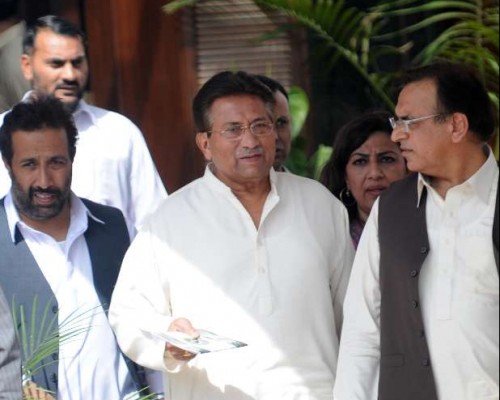
Recalling the Kargil conflict of 1999 between India and Pakistan, former military strongman Pervez Musharraf said New Delhi would never be able to forget the three-month-long battle when his armed forces “grabbed India by the throat”.
“There was a second line force, too, which caught India by the throat and that was latter given the status of an army,” Geo News reported citing Musharraf as saying while addressing a function of his All Pakistan Muslim League (APML) political party.
“We entered Kargil from four points of which India was not aware,” he said, adding that New Delhi will also remember the battle of Kargil.
In May 1999, India and Pakistan, in their most serious military engagement since 1971, clashed in Kargil area of Ladakh in Jammu and Kashmir. In the spring, as snows melted in the Kargil sector to the northeast of Srinagar, some 1,000 or more infiltrators crossed the Line of Control from Pakistani-occupied Kashmir into Indian Kashmir.
Equipped for high-altitude warfare, with snowmobiles and mortars, and protected by Pakistani artillery fire from the other side of the border, they established positions at heights above 14,000 feet, overlooking the strategically vital road that connects Srinagar with Leh in Ladakh.
The operation, Pakistan hoped, would give new stimulus to the decade-long insurgency within Indian Kashmir, and, in its direct impact, both raise the military costs for India in Kashmir and cut the strategic highway link between Srinagar and Leh. It failed on all counts.
On September 2007, Nawaz Sharif, admitted that he had “let down” his then Indian counterpart Atal Bihari Vajpayee, and maintained that the then Pakistan Army chief Pervez Musharraf was behind the 1999 Pakistani aggression in Kargil without his knowledge.
He said Musharraf had “subverted” the process of improving relations with India and regretted not having taken any action against the military strongman who deposed him barely three months later.